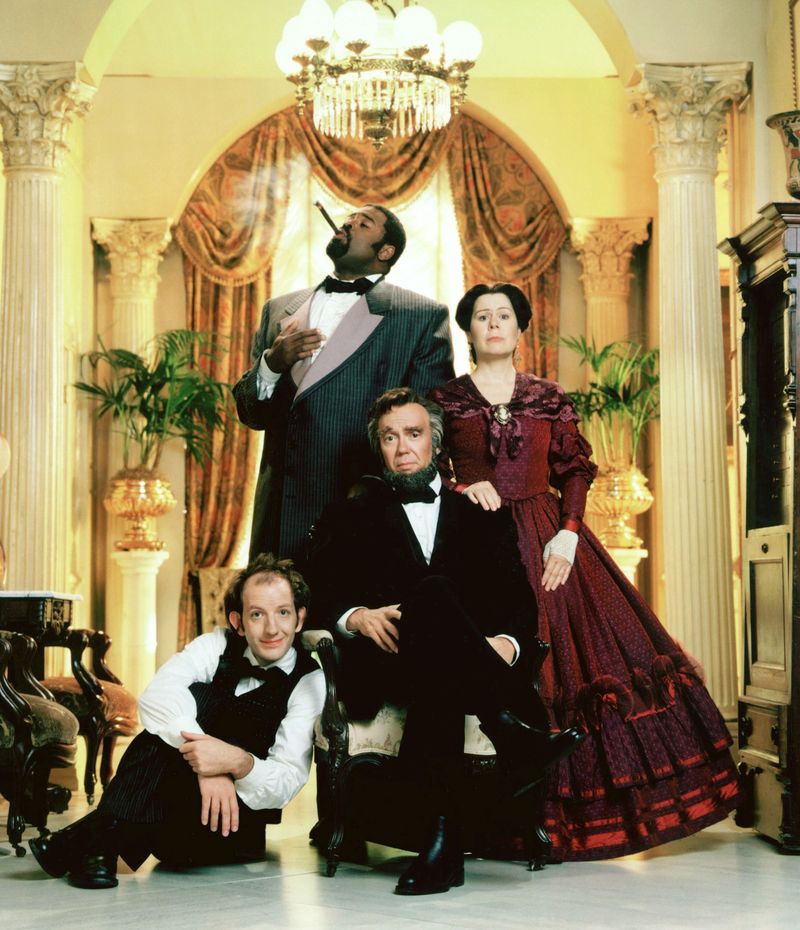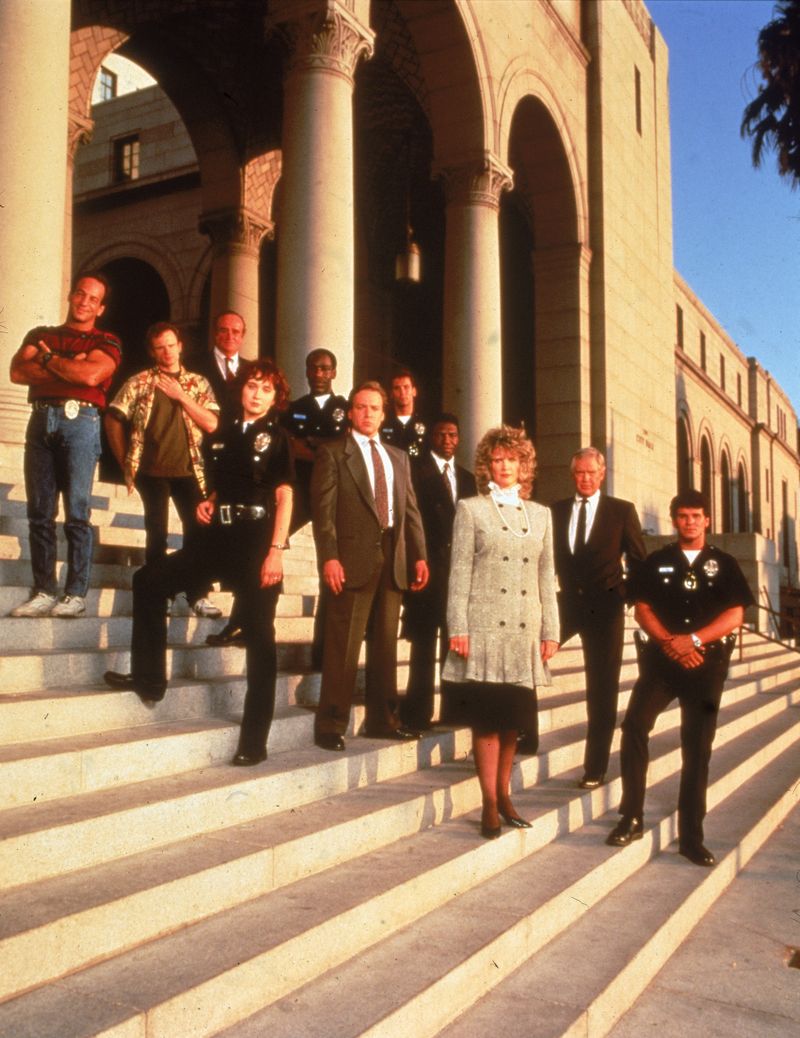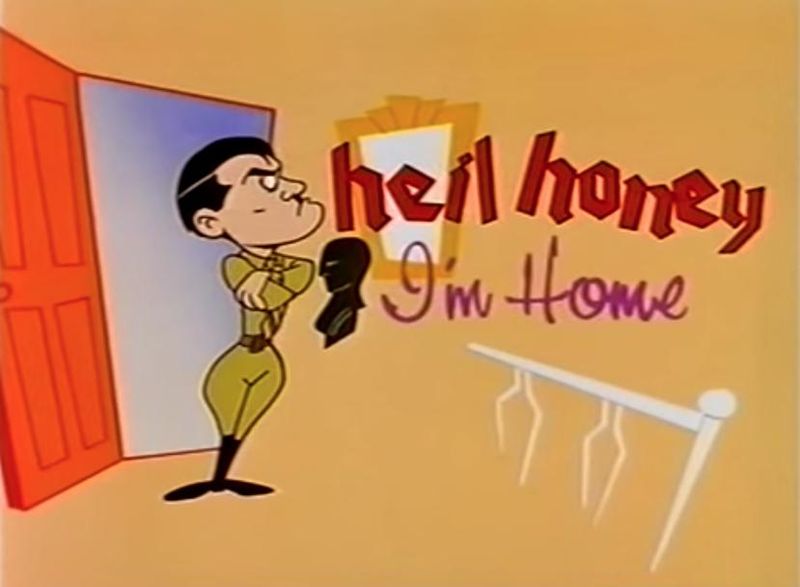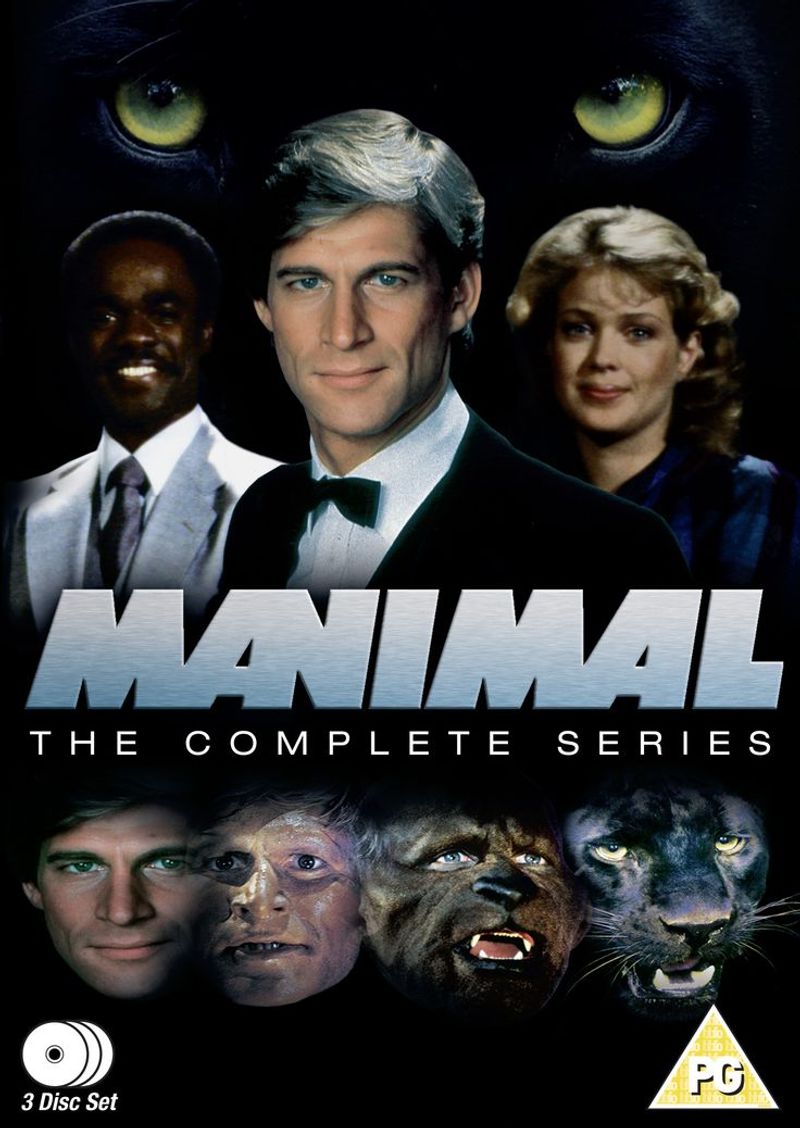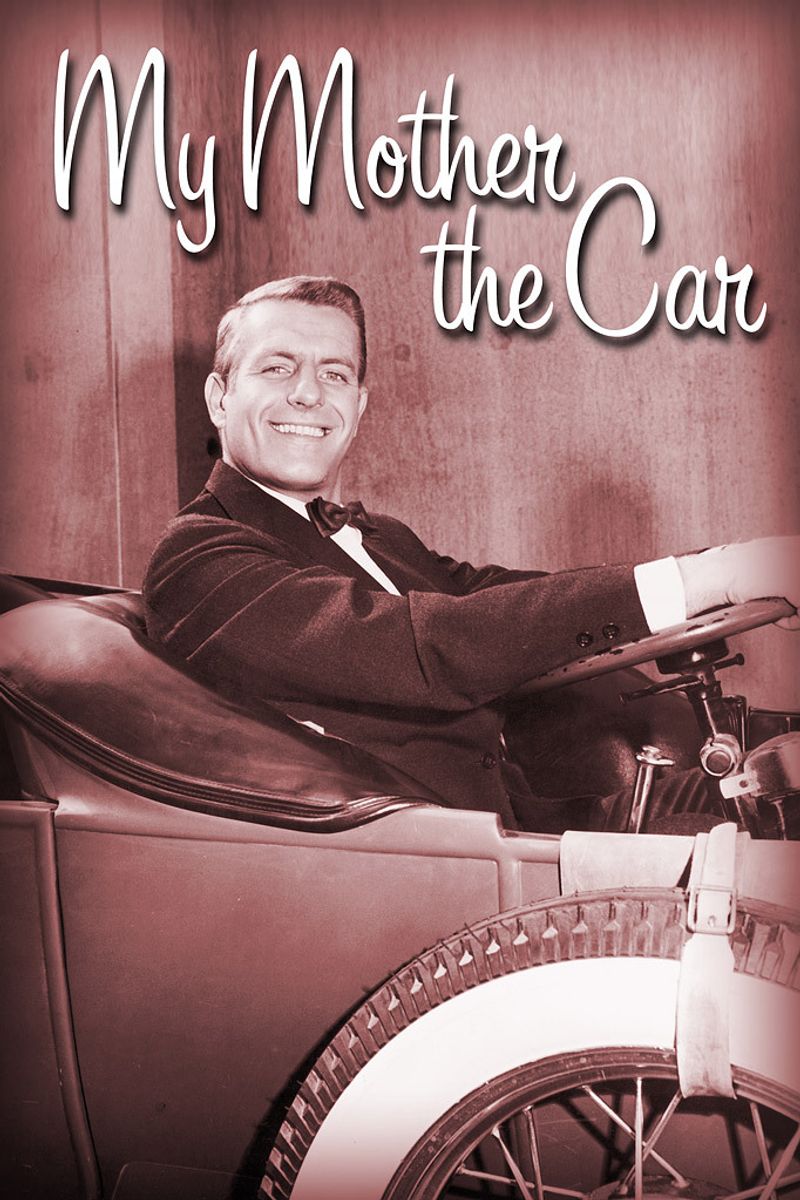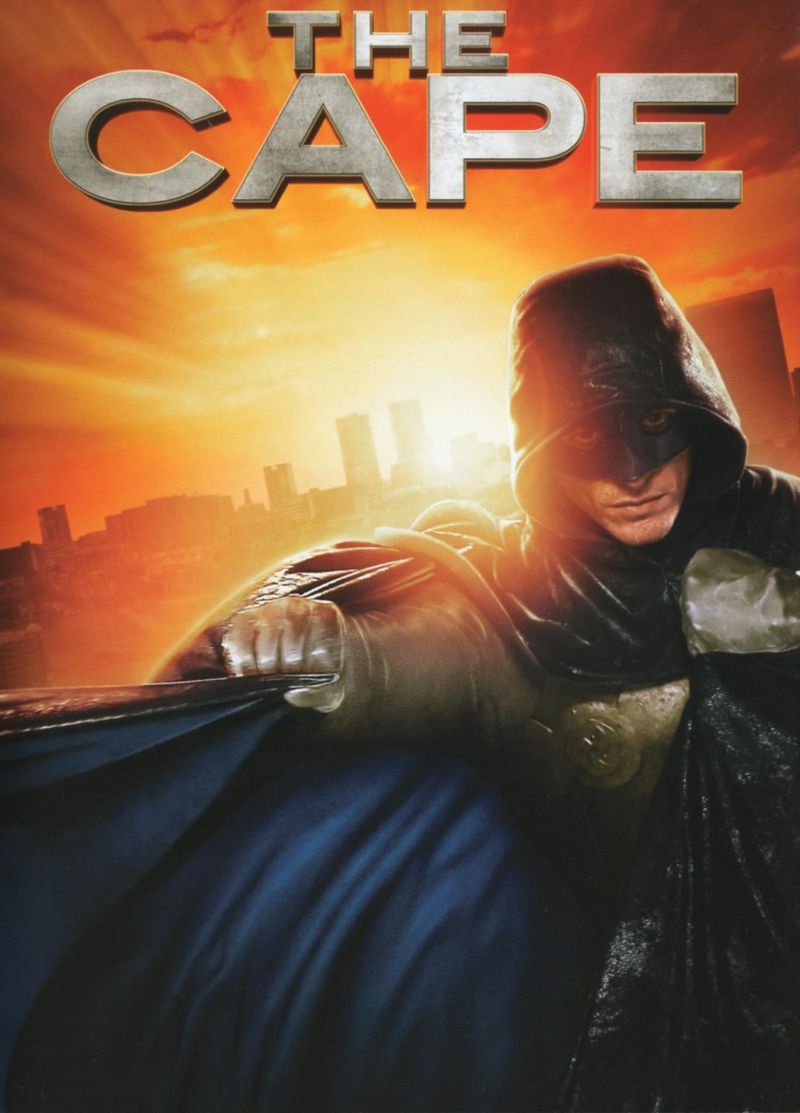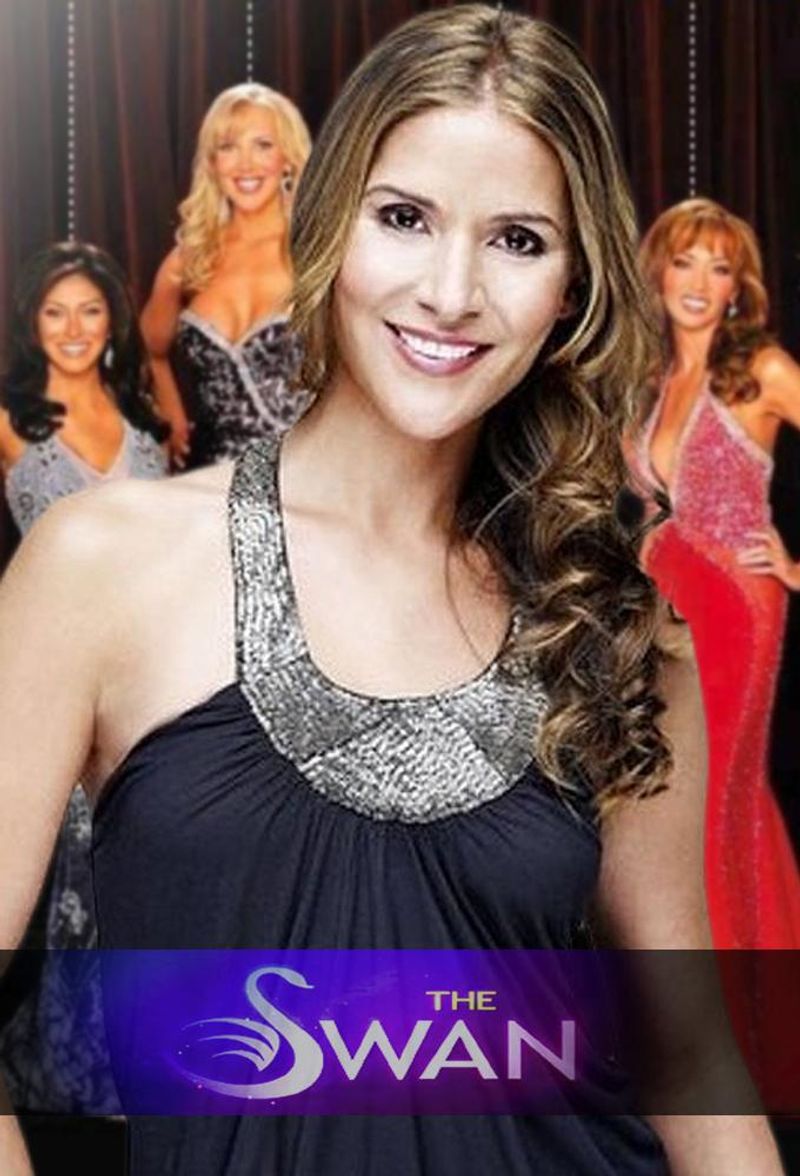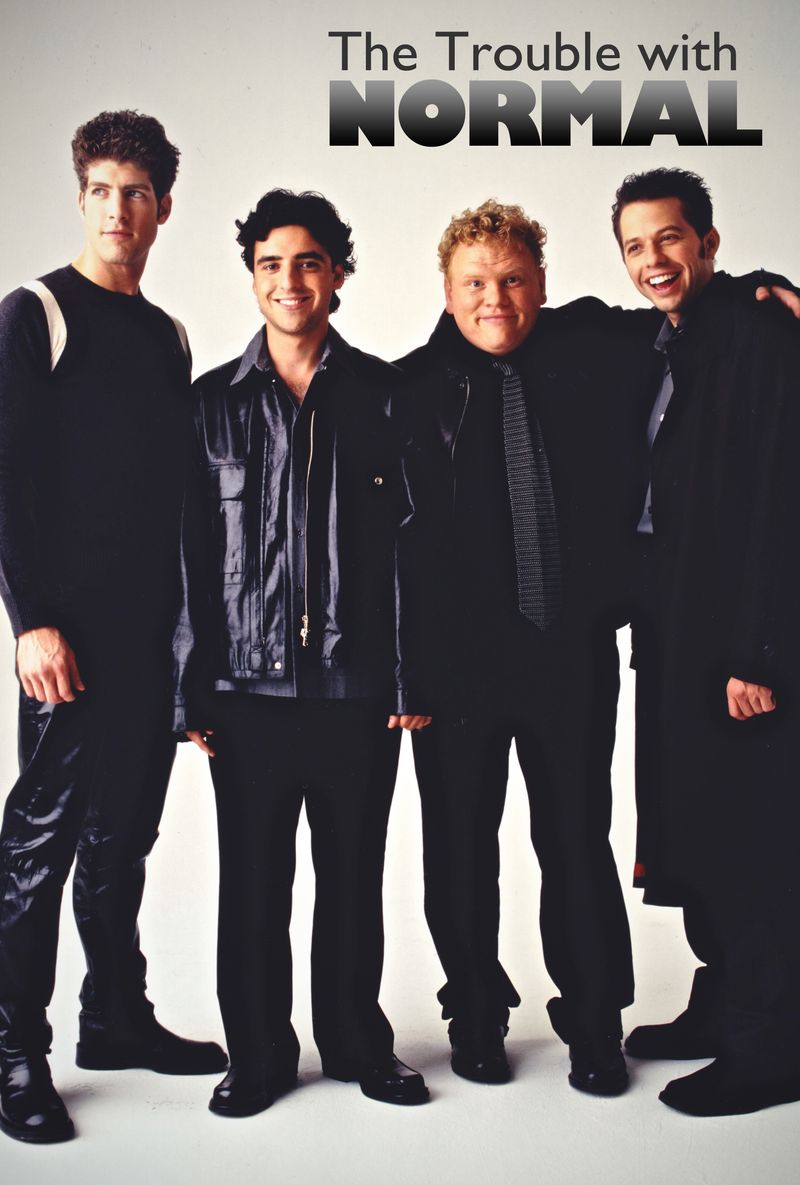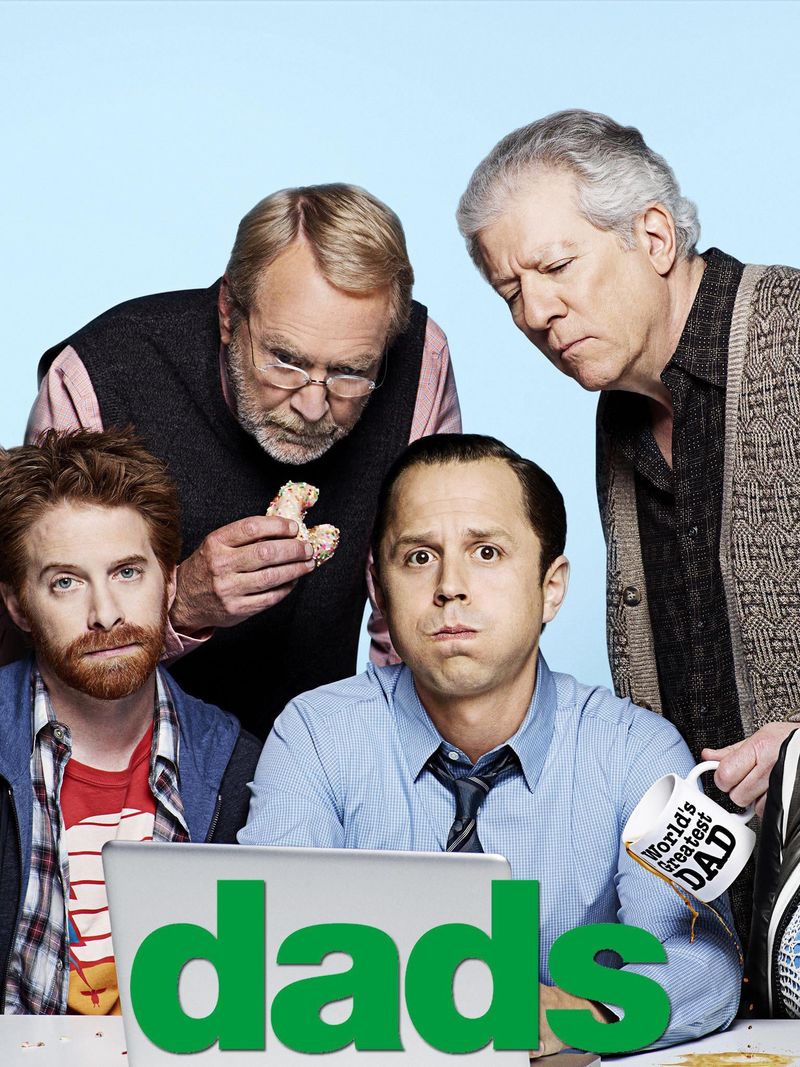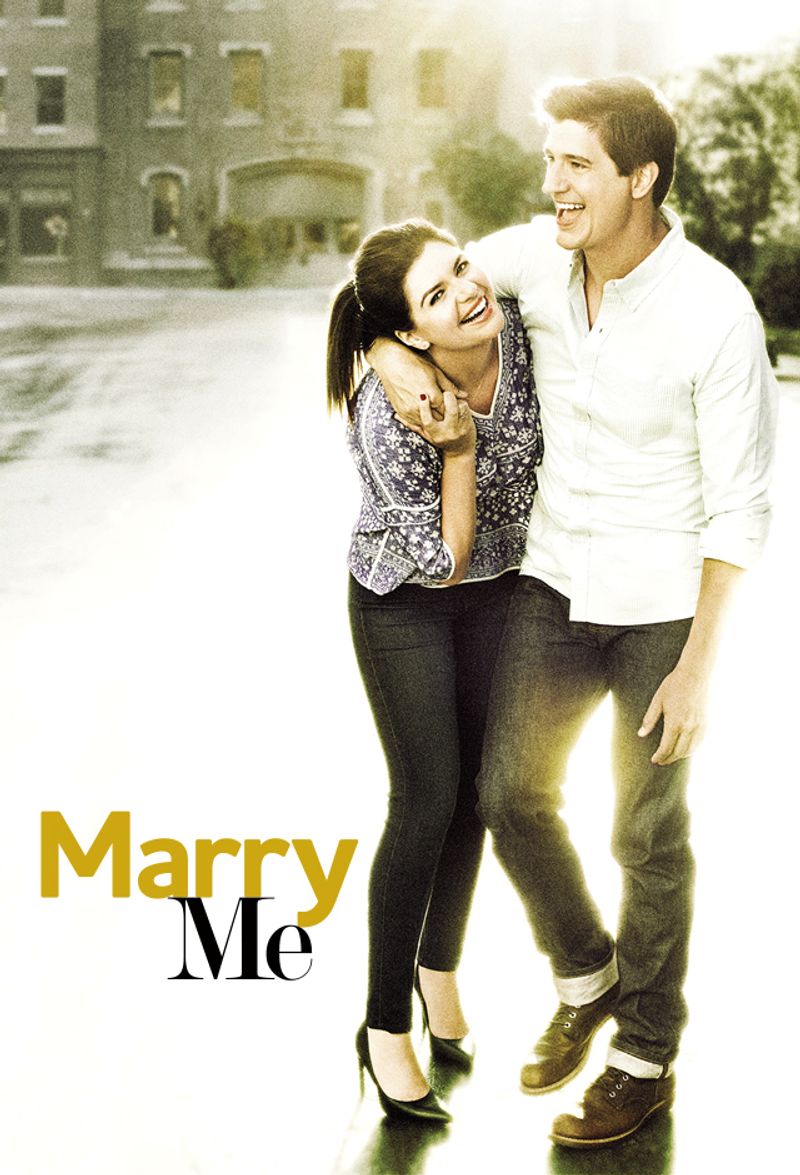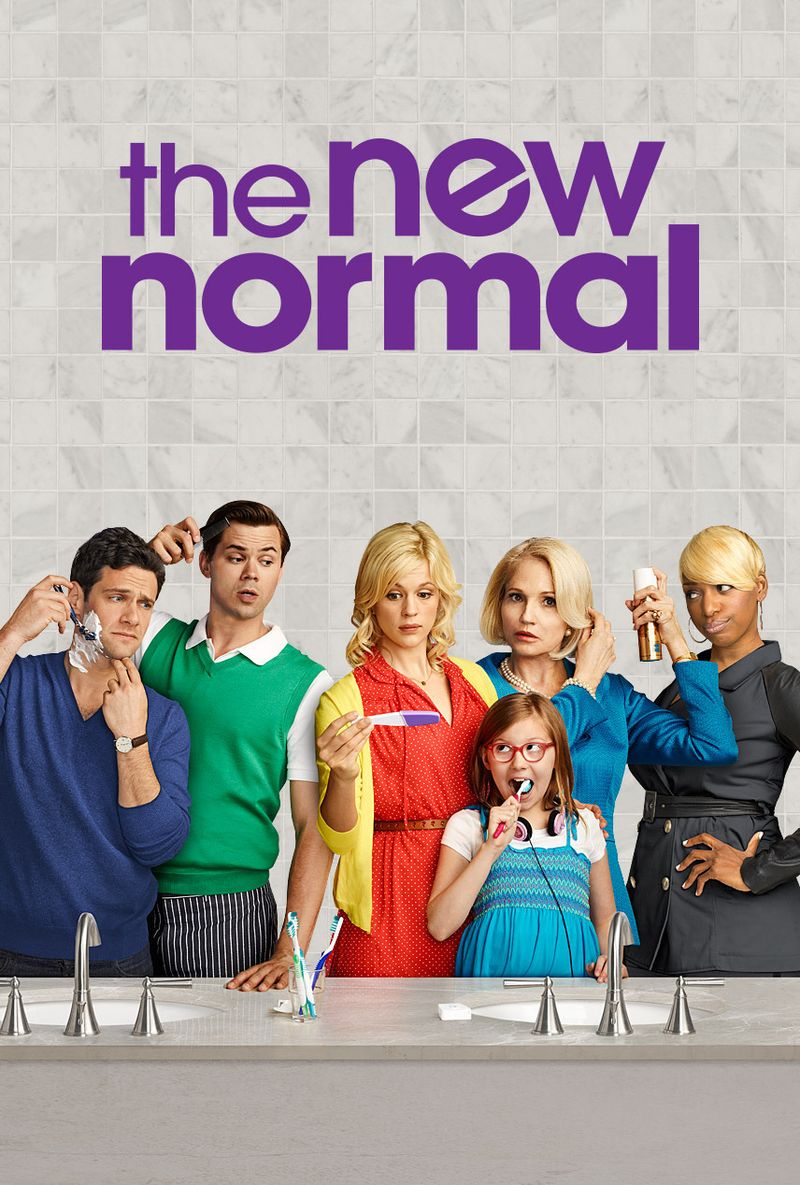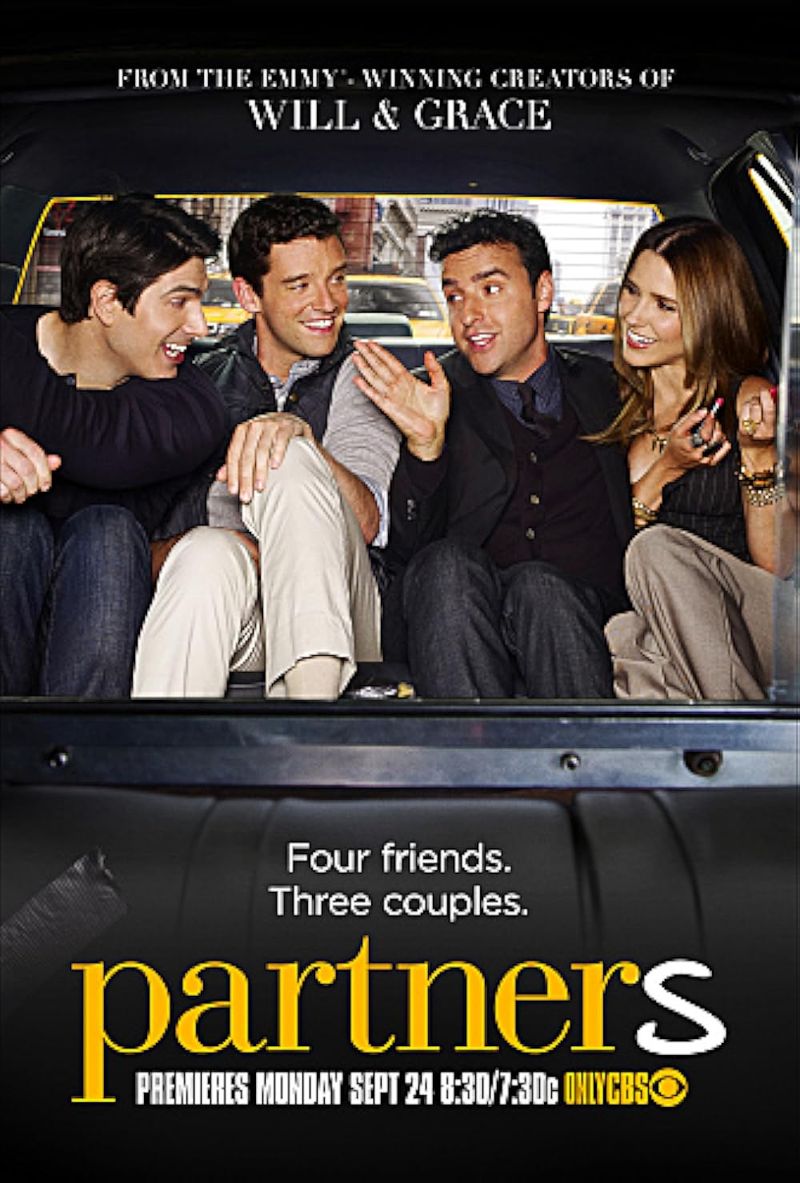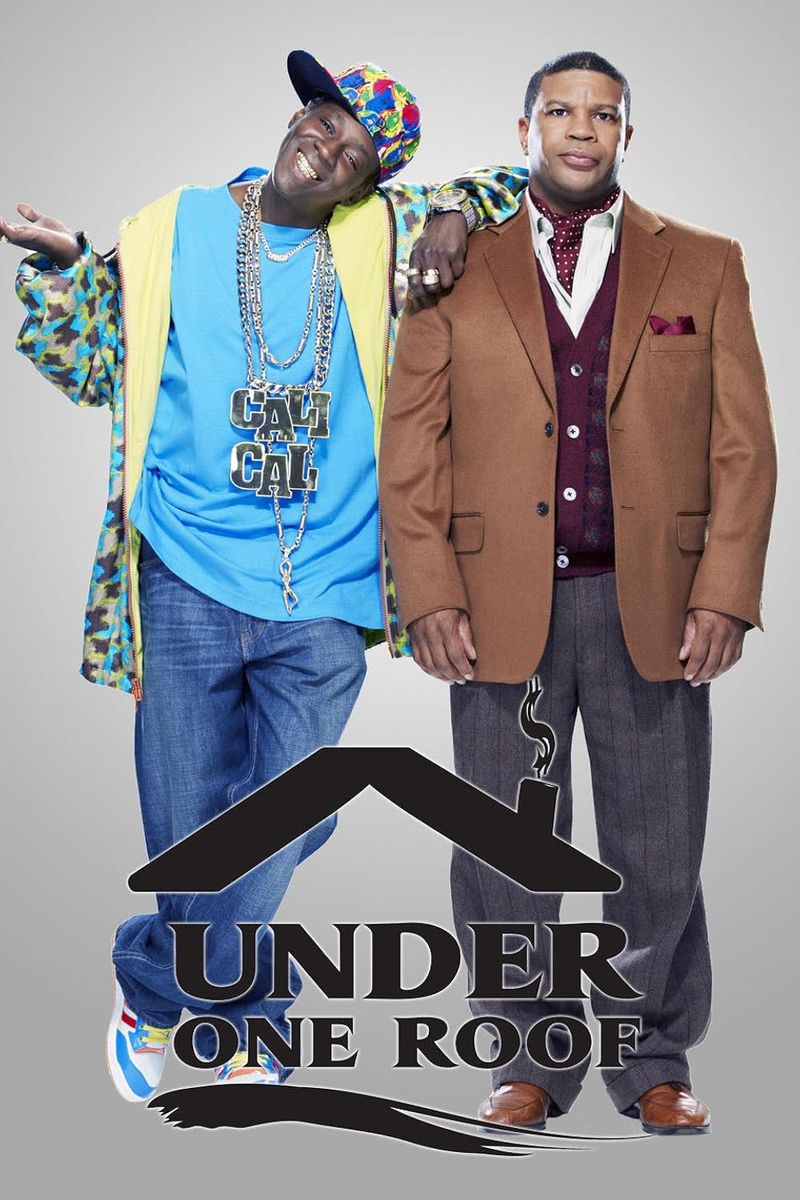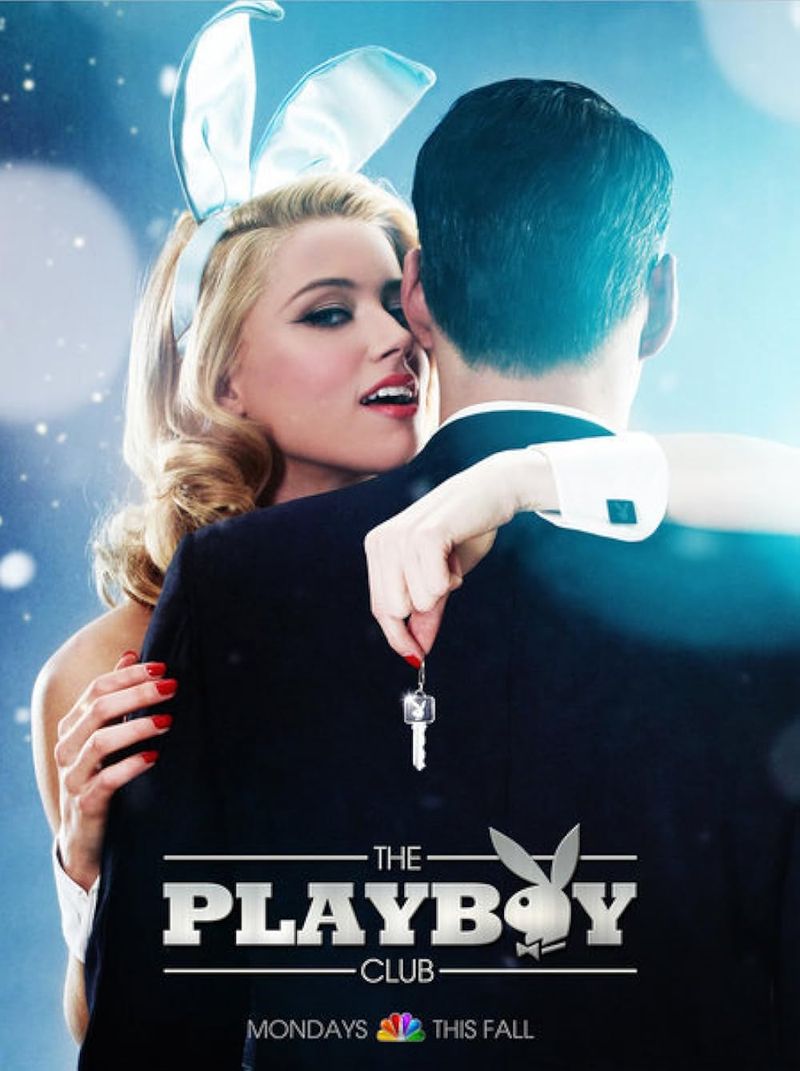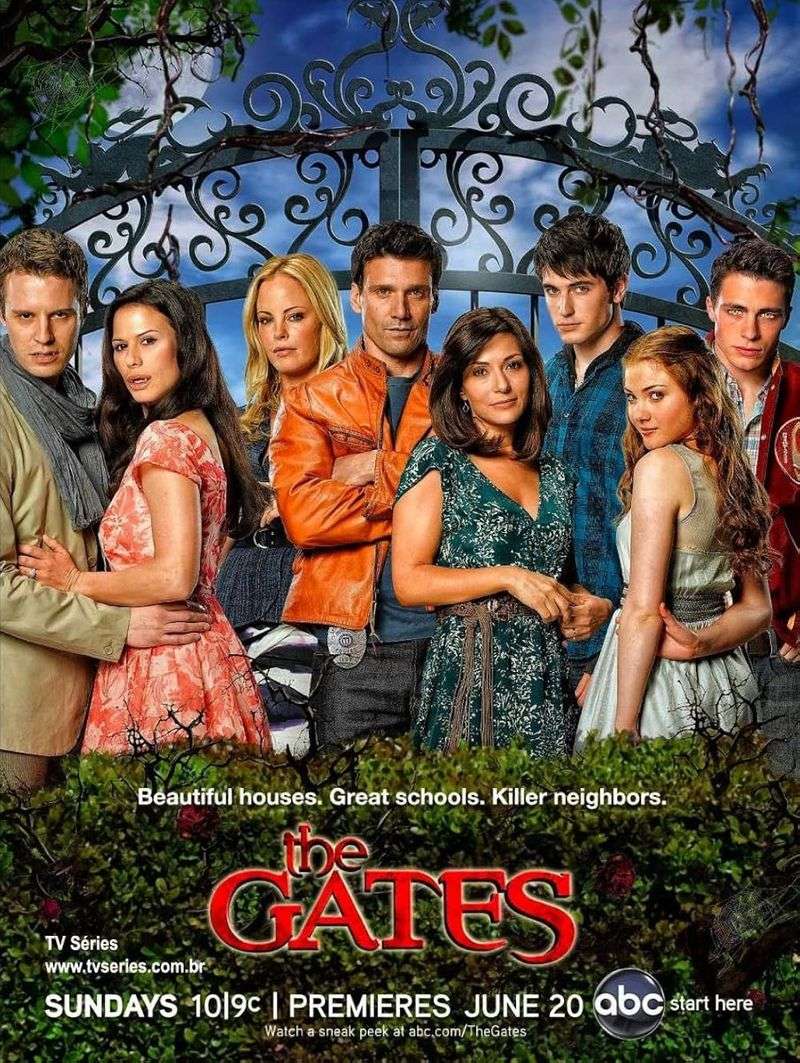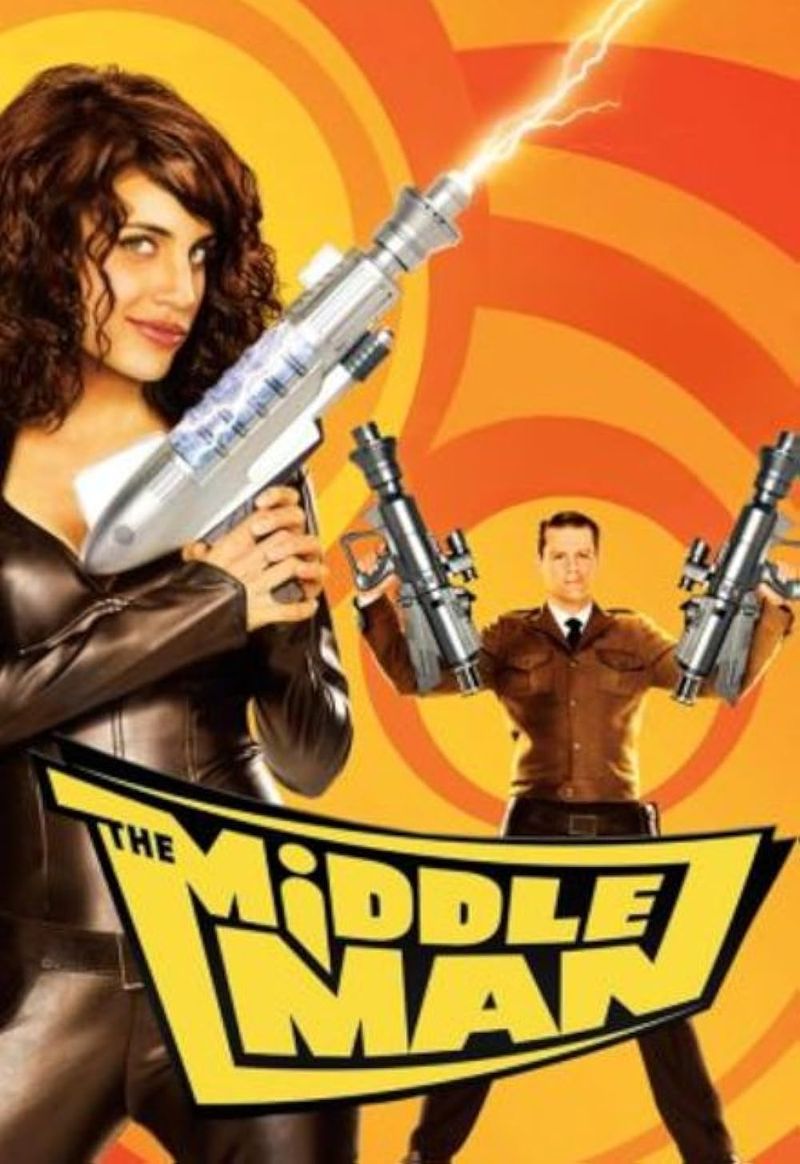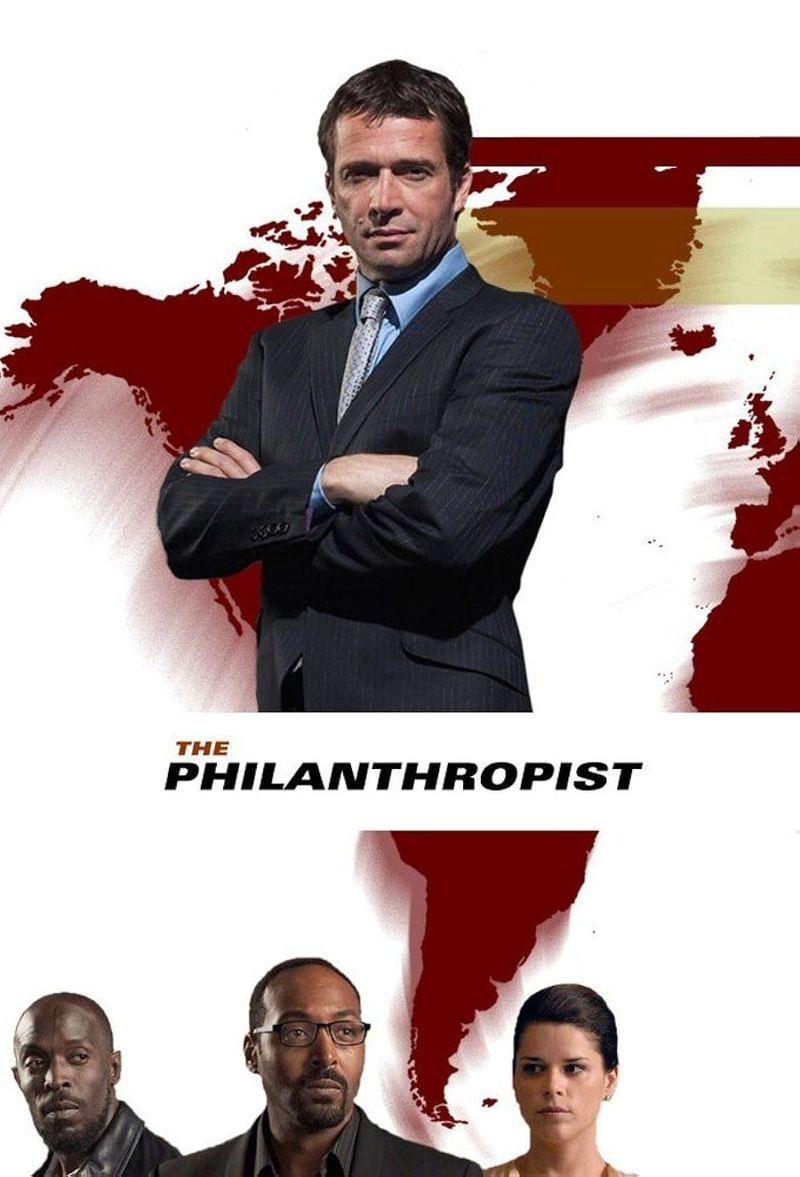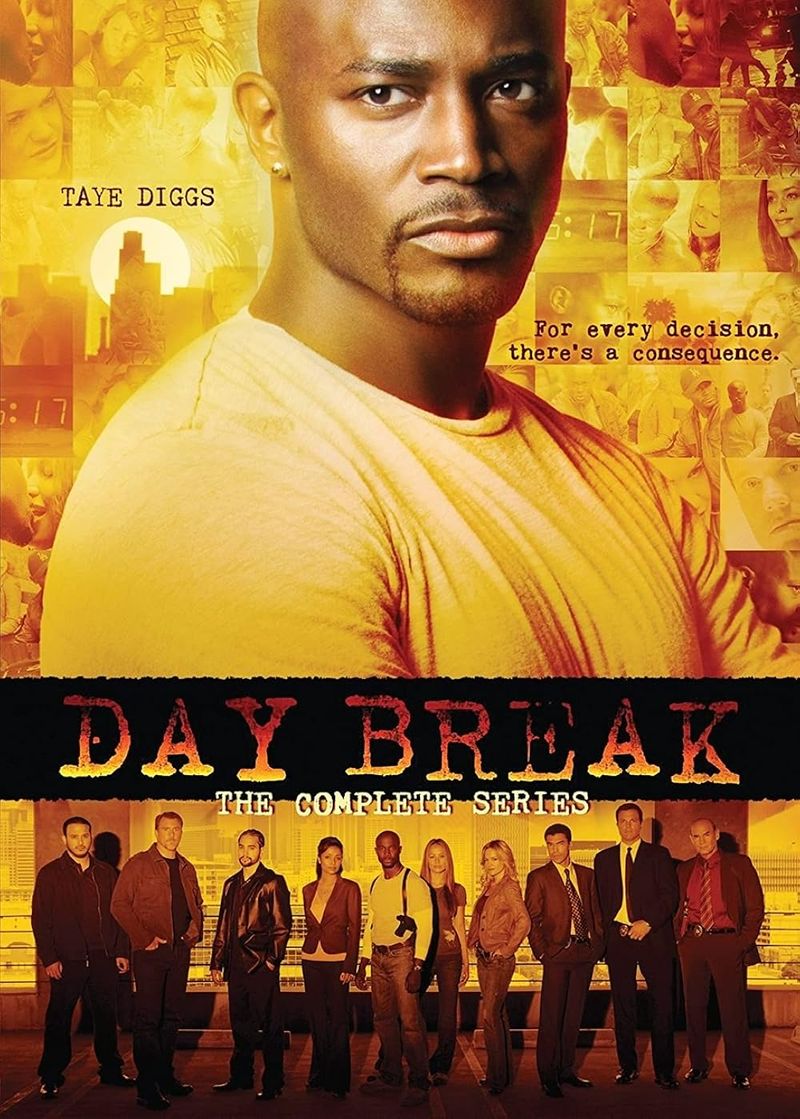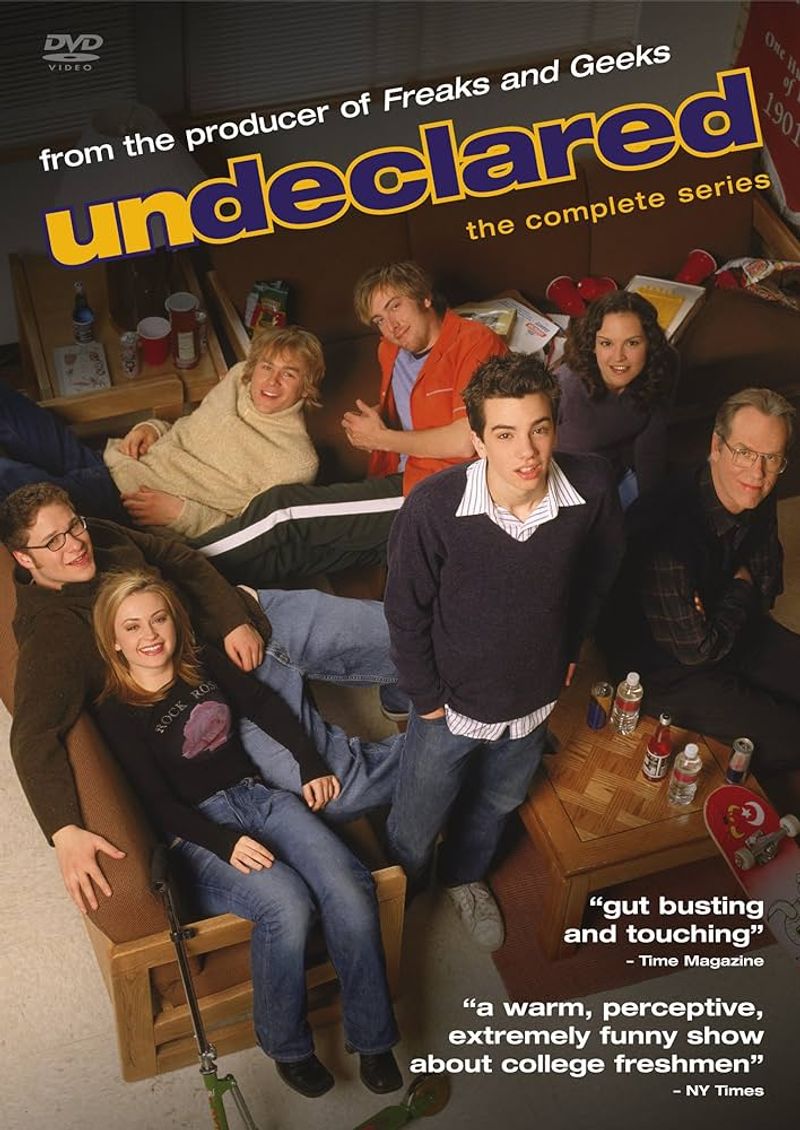In the vast and ever-evolving world of television, some shows emerge as timeless classics, while others quickly fade into obscurity. The following list delves into 25 TV shows that were canceled and, quite frankly, are seldom missed by viewers.
These series, ranging from misguided comedies to perplexing dramas, offer a glimpse into the unpredictable nature of the television industry.
Whether it was due to controversial premises, clumsy execution, or simply failing to find their audience, these shows serve as reminders that not every idea is destined for success on the small screen.
1. The Secret Diary of Desmond Pfeiffer (2008)
A show with audacity but little charm, “The Secret Diary of Desmond Pfeiffer” took a historically satirical route with a touch of insensitivity. Set during the Lincoln administration, the series humor attempted to derive humor from slavery and politics.
Viewers were left uncomfortable rather than amused. The series failed to resonate with audiences or critics, leading to its swift cancellation. Its attempts at wit fell flat, leaving a bad taste and a unanimous agreement that some subjects are too sensitive for slapstick.
2. Viva Laughlin (2007)
“Viva Laughlin,” a strange blend of musical and drama, had viewers scratching their heads. With characters breaking into song amidst gambling escapades, the show never settled into a coherent narrative.
Critics and audiences alike were baffled by its execution. Despite an ambitious attempt to blend genres, the show couldn’t find its rhythm. Its cancellation came swiftly, much to the relief of those who watched its perplexing episodes.
The series serves as a reminder that not all experimental concepts translate well to the screen.
3. Emily’s Reasons Why Not (2006)
Clichés ran rampant in “Emily’s Reasons Why Not,” a sitcom that never quite found its footing among viewers. Starring Heather Graham, the series offered predictable humor revolving around dating and relationships.
Despite an attempt to provide relatable content, the show quickly became just another entry in the sea of romantic comedies.
Its lack of originality and depth led to an early exit from the airwaves. It stands as an example of how traditional formulas can lead to forgettable outcomes.
4. Cop Rock (1990)
In a bizarre twist on traditional crime shows, “Cop Rock” presented a musical police procedural that left audiences bewildered. With officers bursting into song during investigations, the concept was as perplexing as it was unique.
The series struggled to balance its serious crime elements with musical numbers, resulting in a jarring experience for viewers.
Though its ambition was undeniable, “Cop Rock” couldn’t harmonize its vision and quickly faced cancellation. This show highlights the risks of straying too far from conventional storytelling.
5. Heil Honey, I’m Home! (1990)
“Heil Honey, I’m Home!” shocked with its controversial premise, depicting Adolf Hitler and Eva Braun in a sitcom format. The show’s attempt at humor through historical caricature was deemed tasteless and offensive.
Viewers and critics responded with outrage, leading to its swift removal from the air. While intended as satire, the series crossed lines that many found unacceptable. Its brief run is a testament to the importance of sensitivity and taste in comedy.
6. Manimal (1983)
“Manimal” embraced camp as its lead character morphed into various animals to fight crime. Though the concept had potential for fun, its execution quickly turned it into a campy misfire.
The special effects, while ambitious for their time, often fell short, leaving audiences more bemused than impressed.
Despite its unique premise, “Manimal” failed to maintain viewer interest and was canceled after a brief run. It remains a curious relic of adventurous but flawed television ideas.
7. My Mother the Car (1965)
An absurd premise drove “My Mother the Car,” where a man’s mother reincarnates as a talking automobile. This quirky idea quickly became a punchline in discussions of failed TV concepts.
The show’s attempt at humor through the interplay between man and machine couldn’t steer it to success. Critics and audiences found little to admire, and it soon ran out of gas.
“My Mother the Car” now serves as a cautionary tale of how far-fetched ideas can lead to early cancellation.
8. The Cape (2011)
“The Cape” aimed to bring a new superhero to the screen but found itself unable to soar. The series followed a police officer who becomes a masked vigilante, donning a cape with special abilities.
While the concept intrigued some, the show’s lackluster storytelling and character development couldn’t hold viewer interest.
Despite its attempts at creating a gritty, heroic narrative, “The Cape” was clipped before it could truly take off. It highlights the challenges of competing in a superhero-saturated market.
9. The Swan (2004)
“The Swan” took reality TV to superficial extremes, transforming participants with cosmetic surgery and makeovers. The show’s approach to beauty and self-worth was widely criticized for its focus on external changes rather than inner growth.
Many viewers found its premise unsettling, leading to a backlash against its superficial values.
Though it initially attracted attention for its dramatic reveals, the controversy overshadowed any positive impact. “The Swan” is a stark reminder of reality TV’s potential ethical pitfalls.
10. The Trouble with Normal (2000)
“The Trouble with Normal” struggled with an identity crisis, never fully embracing its quirky potential. Set around a group of eccentric characters, the series aimed for humor in everyday oddities but often fell short.
Lacking consistency and memorable moments, it wasn’t long before both viewers and networks lost interest. Its attempt to highlight the comedy in unusual behavior didn’t resonate, leading to its quick departure from television.
The show’s brief existence reflects the challenge of capturing distinctiveness in sitcoms.
11. Dads (2013)
“Dads” attempted to explore modern parenting with a comedic twist, but its use of outdated humor quickly alienated audiences.
The sitcom centered on two fathers interfering in their adult children’s lives, a premise rife with potential yet squandered by clichéd jokes. Critics pointed to its lack of fresh perspectives and reliance on tired stereotypes.
Despite initial interest, the show couldn’t sustain its momentum, leading to an early cancellation. “Dads” serves as an example of how quickly outdated content can fall out of favor with viewers.
12. Marry Me (2014)
“Marry Me” entered the romantic comedy genre with promise but fizzled out as it failed to capture lasting interest. The series followed the ups and downs of a couple navigating engagement pressures, yet its charm wore thin.
Despite attempts at humor, the show’s predictable scenarios and lack of depth didn’t endear it to viewers.
Its short-lived run underscores the importance of innovation in keeping romantic comedies fresh and engaging. “Marry Me” highlights the competitive nature of this well-trodden genre.
13. The New Normal (2012)
Attempting to tackle modern relationships with humor, “The New Normal” struggled to find its comedic voice. The series depicted a diverse family unit, aiming to reflect contemporary dynamics with a humorous lens.
However, its attempts often felt forced, resonating neither with audiences nor critics. The show’s early departure from the airwaves suggests a disconnect between its aspirations and execution.
It stands as a reminder of the challenges in effectively blending social commentary with comedy.
14. Partners (2012)
“Partners” aimed to showcase friendship dynamics through the lens of a mismatched duo, but struggled with chemistry and delivery.
The sitcom depicted the relationship between lifelong friends, one straight and one gay, navigating personal and professional lives. Despite its intriguing premise, the series lacked the spark needed to keep audiences engaged.
The humor often missed its mark, leading to a quick cancellation. “Partners” highlights how essential chemistry and timing are in creating memorable sitcoms.
15. The Ex (2009)
Reality TV ventured into awkward territory with “The Ex,” a show focused on the tumultuous dynamics of former relationships. Its negative portrayal and sensationalized content led to backlash from viewers and critics alike.
The series struggled to balance drama with entertainment, resulting in an uncomfortable viewing experience.
Unable to maintain interest, “The Ex” was swiftly canceled, leaving behind a legacy of what not to do in reality television. It serves as a cautionary tale for producers seeking to exploit personal relationships for ratings.
16. Bionic Woman (2007)
“Bionic Woman” attempted to reboot the iconic 70s series but couldn’t recreate the magic that captured audiences decades ago. The show followed a young woman with enhanced abilities navigating espionage and personal struggles.
Despite its action-packed premise, the series failed to resonate, lacking the charm and depth of its predecessor.
Its cancellation after one season reflects the difficulty in reviving beloved classics without a fresh perspective. “Bionic Woman” is a reminder that nostalgia alone isn’t enough for success.
17. Under One Roof (2008)
Aiming to capture the humor and heart of a blended family, “Under One Roof” never found its rhythm with viewers. The series showcased diverse characters navigating everyday chaos, yet struggled to provide engaging storylines and relatable humor.
Despite a promising setup, the show’s lack of clear identity led to its quick exit from the airwaves. It serves as an example of the challenges in creating memorable and distinctive family comedies amid a crowded TV landscape.
18. The Playboy Club (2011)
Set against the backdrop of 1960s nightlife, “The Playboy Club” sought to weave drama with historical allure, but found itself mired in controversy. The series faced criticism for glamorizing a controversial era, overshadowing its narrative potential.
Despite a stylish presentation, it struggled to attract viewers or critical acclaim, leading to an early cancellation. “The Playboy Club” underscores the delicate balance needed when depicting historical periods with modern sensibilities.
19. The Gates (2010)
“The Gates” promised intrigue with its blend of suburban drama and supernatural elements but fell short of expectations. The series followed residents of a gated community harboring dark secrets, yet its execution lacked suspense and coherence.
Despite an interesting concept, the show struggled to maintain audience interest and was subsequently canceled. “The Gates” highlights the challenges of combining genres without losing narrative focus.
20. The Middleman (2008)
With its quirky approach to sci-fi, “The Middleman” offered a refreshing spin on heroics but couldn’t escape early cancellation. The series followed an unlikely duo tackling absurd threats with humor and wit.
Despite gaining a cult following, the show struggled with mainstream appeal, leading to its premature end.
“The Middleman” serves as a testament to the challenges faced by unique narratives in finding a broad audience. It remains a beloved gem for those who appreciate its original charm.
21. The Philanthropist (2009)
“The Philanthropist” aimed to blend adventure with moral storytelling, following a wealthy man using his resources for good. While the series showcased exotic locales and admirable themes, it struggled to maintain viewer interest.
Critics noted its lack of emotional depth and character development, leading to a swift cancellation.
“The Philanthropist” is a reminder that even noble premises need engaging narratives and relatable characters to succeed. It left audiences pondering the balance between message and entertainment.
22. V (2009)
“V,” a modern remake of the 1980s sci-fi series, struggled to reach the heights of its predecessor. The show depicted humanity’s encounter with seemingly benevolent alien visitors, hiding sinister agendas.
Despite its intriguing premise, “V” lacked the depth and tension that made the original a classic. The remake’s failure to capture the same cultural impact led to its cancellation.
“V” underscores the challenges in reviving beloved properties while meeting modern audience expectations.
23. The River (2012)
“The River” sought to blend adventure and horror, following a search party navigating treacherous waters filled with supernatural threats. Although the premise promised thrills, the series suffered from inconsistent pacing and convoluted storytelling.
Despite moments of genuine suspense, it couldn’t maintain a coherent narrative, leading to mixed reviews and eventual cancellation.
“The River” highlights the difficulty in sustaining atmosphere and intrigue over episodic television without losing viewer engagement.
24. Day Break (2006)
“Day Break” presented a compelling time-loop narrative within a crime drama framework, following a detective reliving the same day. The series captivated with its intriguing premise but struggled to maintain momentum across episodes.
Despite early promise, the repetitive structure led to diminishing returns, resulting in its early cancellation. “Day Break” serves as a cautionary tale of the challenges in sustaining innovative concepts over long-form storytelling.
It left viewers pondering the complexities and potential pitfalls of time-loop narratives.
25. Undeclared
“Undeclared,” while critically acclaimed, never reached the heights it aspired to during its brief run. The college-set comedy captured the nuances of young adulthood with humor and heart, yet struggled to find a broad audience.
Despite its relatable themes and talented cast, the series was axed after one season. “Undeclared” remains a beloved cult classic, often praised for its witty writing and authentic portrayals.
Its cancellation is a reminder of how even the most promising shows can struggle to find their place.

